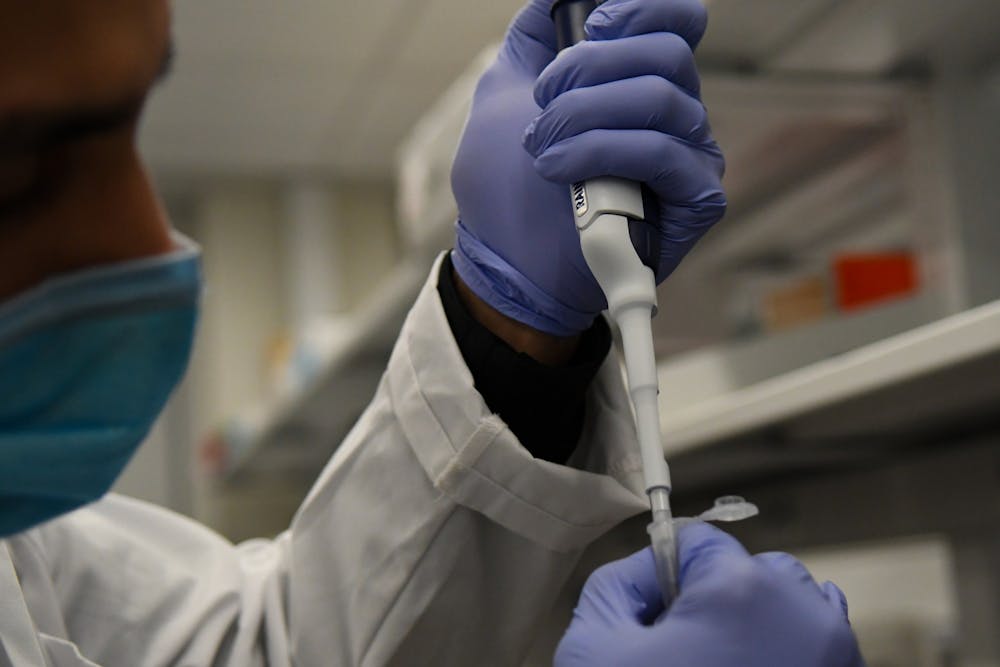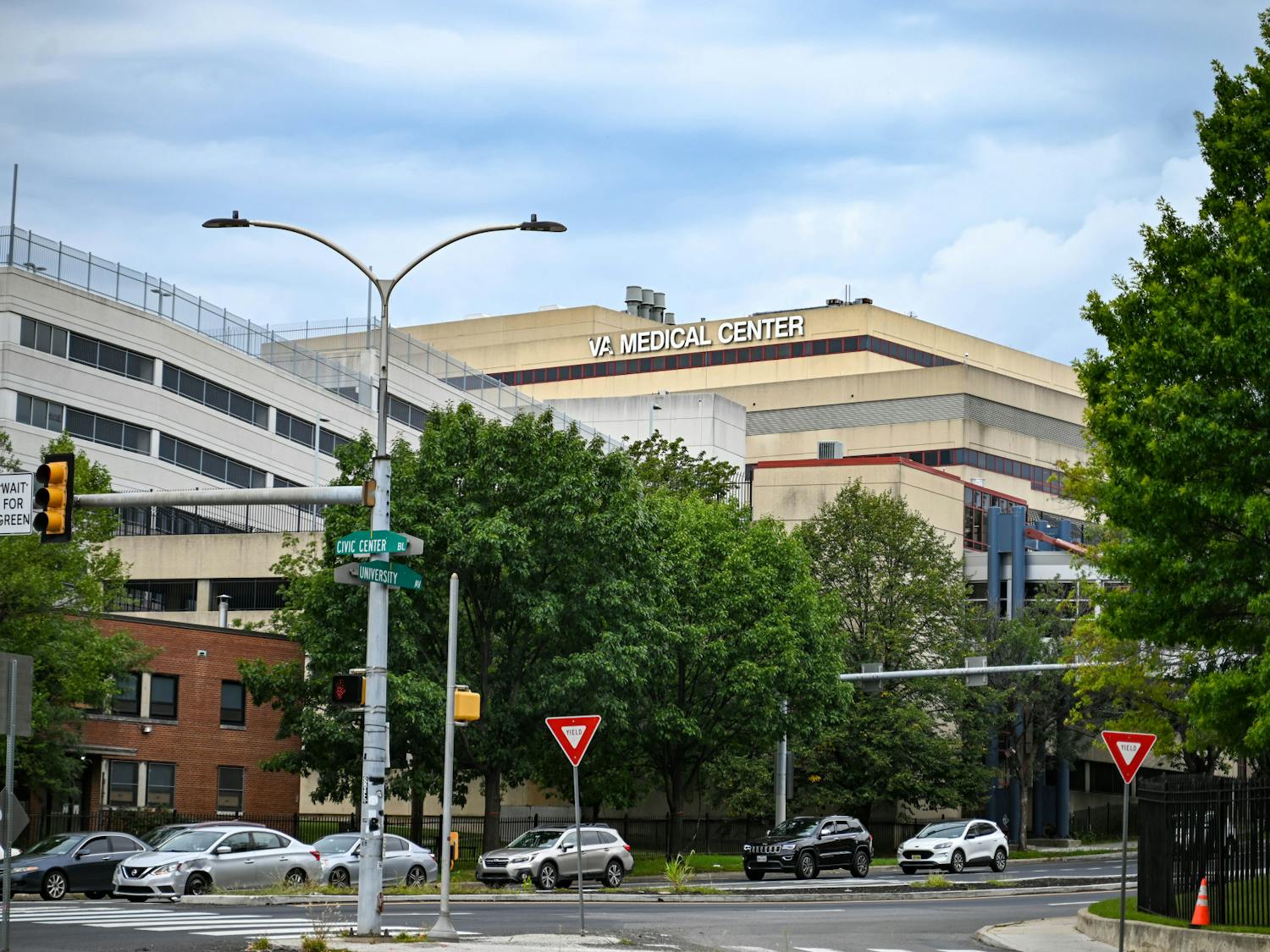Penn Medicine's Gene Therapy Program will collaborate with Regeneron Pharmaceuticals to research the effectiveness of a method of administering Regeneron's antibody cocktail in combating COVID-19.
Regeneron's antibody cocktail was granted an Emergency Use Authorization by the United States Food and Drug Administration on Nov. 21 for use in high-risk patients with mild to moderate cases of COVID-19. The antibody cocktail, which combines the monoclonal antibodies casirivimab and imdevimab, is currently being studied in clinical trials for the treatment of COVID-19.
According to the FDA, the antibody cocktail aims to preemptively give high-risk individuals an increased immune response to the coronavirus. The cocktail was given to President and 1968 Wharton graduate Donald Trump in early October, after he was diagnosed with the virus.
The Penn Med researchers will study the effectiveness of delivering the antibody cocktail intranasally through Adeno-Associated Virus vectors. Researchers will replace the viral DNA in AAV vectors with new DNA that codes for COVID-19-fighting antibodies. Typically, AAV vectors are used in delivering gene therapies to fight deadly genetic diseases.
James Wilson, Penn Medicine professor and director of the school’s Orphan Disease Center and Gene Therapy Program, will assume a lead role in investigating the potential of AAV vectors to increase the efficacy of Regeneron’s antibody cocktail. Wilson's team is optimistic that delivering the cocktail via a single dose of AAV will produce protection from the virus for patients based on Regeneron's preclinical studies showing that the antibody cocktail can prevent infection in animal models.
This study includes two phases, the first of which will use large animals as subjects to test their response to COVID-19 exposure following antibody delivery through AAV vectors. If the first phase goes well, Penn Medicine and Regeneron will advance to human trials.
AAV is being analyzed as a possibly preferable alternative to traditional methods of drug delivery, such as intravenous injection. The use of AAV as a delivery system may enable the antibodies in the Regeneron treatment to fight against the infection for a longer period of time and to begin responding more quickly after being administered.
“This latter feature may be particularly attractive in people with weakened immune systems, like the elderly, or people who need rapid protection, like frontline healthcare workers,” Wilson told Penn Medicine News.









